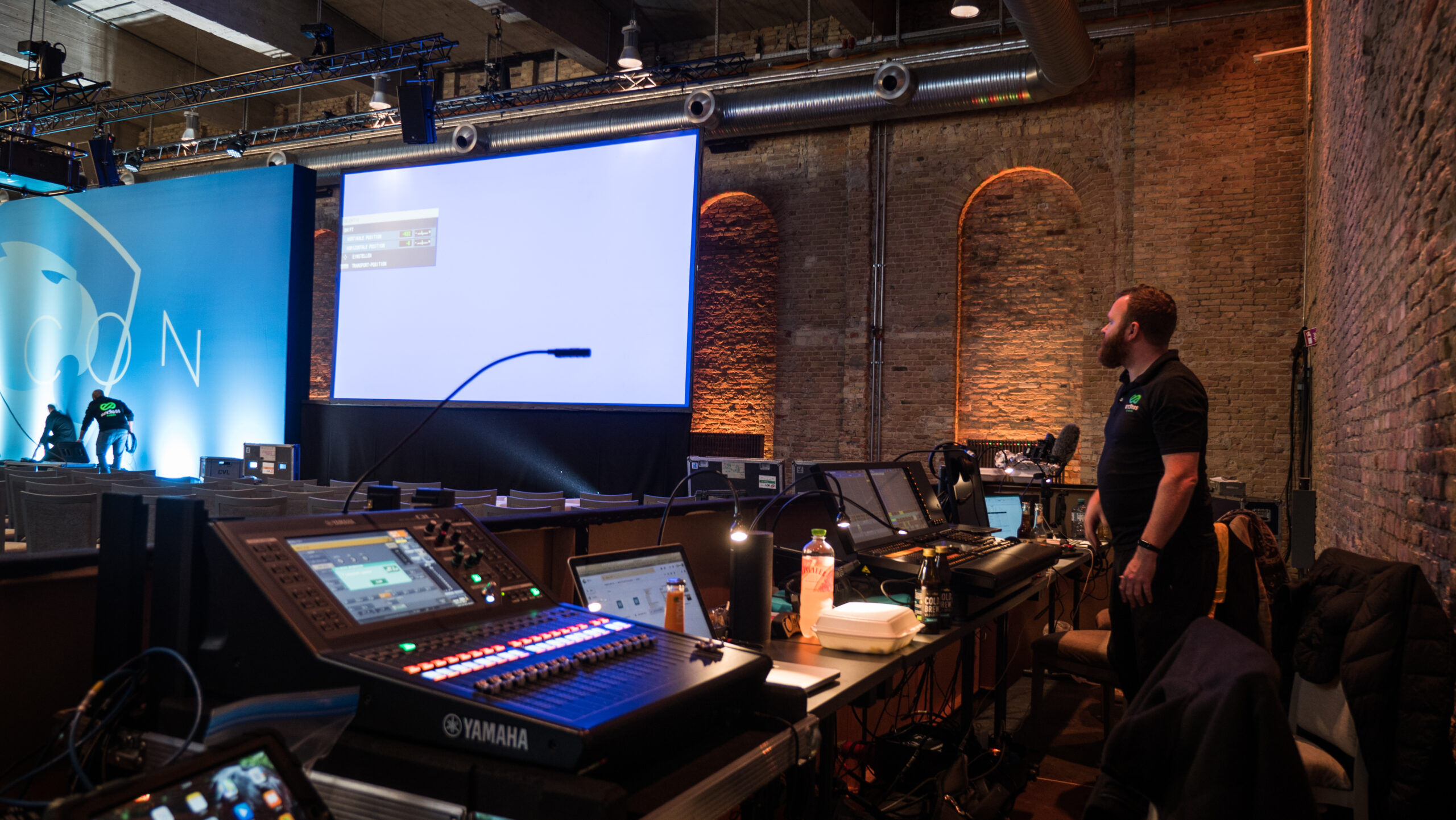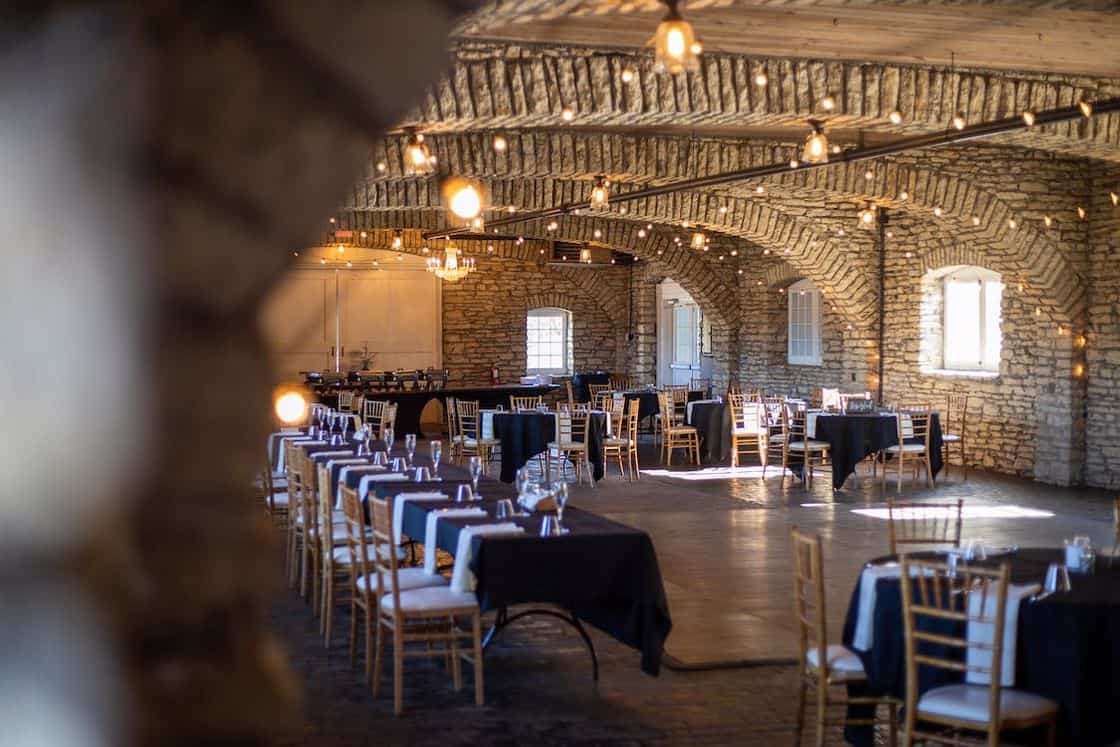Comprehending Event Production: Why It Is Essential for Effective Events
Event production plays a crucial role in forming effective gatherings. It entails mindful preparation, coordination, and implementation to guarantee every information straightens with the event's vision. This process not only boosts participant experiences but likewise helps with purposeful links among participants. Recognizing the intricacies of event production can substantially impact the overall end result. What are the vital elements that add to an effective event, and just how can they be effectively handled?
The Duty of Event Production in Creating Remarkable Experiences
Several elements add to the success of an event, event production plays a crucial role in crafting memorable experiences. This diverse process includes different components, consisting of preparation, logistics, and implementation. Effective event production warranties that every detail straightens with the general vision, creating a seamless circulation that captivates participants. By working with timelines, managing sources, and looking after technological facets, event producers develop a foundation for impactful experiences.Moreover, they curate atmospheres that resonate with the target audience, enhancing involvement and emotional connection. From choosing suitable venues to incorporating cutting-edge innovation, the options made during production significantly influence how participants regard and remember the event. By prioritizing high quality and focus to detail, event production changes ordinary celebrations into phenomenal minutes, leaving long lasting impressions. Eventually, the skillful orchestration of these elements specifies the significance of an event, showcasing the significance of specialist event production in attaining extraordinary end results.
Key Components of Effective Event Production
Efficient event production depends upon a number of key elements that guarantee success. Preparation and control establish a strong foundation, while technological setup demands resolve logistical requirements. In addition, executing target market engagement methods enhances the general experience, making the event remarkable.
Planning and Sychronisation
Preparation and coordination offer as the backbone of successful event production, ensuring that every detail straightens perfectly to develop a memorable experience. Efficient preparation involves developing a clear vision and purposes, while coordination involves the thorough organization of logistics, routines, and sources. A well-defined timeline is necessary, guiding all stakeholders with essential milestones and jobs. Interaction plays a pivotal function, cultivating collaboration among employee, suppliers, and place personnel. Routine conferences and updates help to address challenges without delay, making certain that everyone stays lined up with the event goals. Eventually, a structured method to planning and sychronisation not just improves effectiveness but likewise substantially adds to the total success and pleasure of the event for guests and coordinators alike.
Technical Setup Demands
A successful event counts heavily on its technological arrangement demands, which include necessary components such as audio-visual tools, illumination, hosting, and connection. Audio-visual devices includes microphones, speakers, and projectors, ensuring that discussions and performances are provided clearly. Correct lighting boosts the atmosphere and highlights crucial locations, while presenting gives the essential platform for speakers and performers. Connectivity, consisting of Wi-Fi and electrical accessibility, is crucial for seamless communication and modern technology combination. Each element should be thoroughly prepared and implemented, customized to the event's details requirements. Insufficient technological setups can cause interruptions, negatively affecting the overall experience for guests, emphasizing the value of extensive preparation and attention to detail in event production.
Audience Engagement Strategies

The Relevance of Planning and Control
Planning and sychronisation are vital to the success of any event production. Efficient timeline monitoring, source allocation methods, and group communication characteristics play important functions in ensuring that all aspects come with each other seamlessly. Without an organized strategy to these aspects, events run the risk of encountering delays, budget plan overruns, and miscommunication amongst group members.
Reliable Timeline Monitoring


While successful event production often rests on imagination and implementation, efficient timeline monitoring stays an important component that can not be neglected. A well-structured timeline offers as the backbone of any kind of event, guaranteeing that each stage is carried out in a timely way. It allows for the sychronisation of various tasks, from place setup to visitor arrivals, while preventing prospective bottlenecks. By clearly laying out deadlines and duties, event coordinators can preserve emphasis and adapt to unanticipated obstacles. Furthermore, a diligently crafted timeline cultivates communication among staff member, promoting responsibility and cooperation. Ultimately, efficient timeline monitoring not just enhances operational effectiveness yet also adds substantially to the general success and smooth execution of the event, leaving participants with a remarkable experience.
Resource Allotment Approaches
Reliable source allocation techniques are vital for the effective implementation of any event. Proper planning allows event organizers to determine and disperse sources, such as funds, employees, and products, in a fashion that takes full advantage of effectiveness. By examining the details demands of each facet of the event, coordinators can focus on jobs and designate resources appropriately. Sychronisation among different departments ensures that all elements, from dealing with audiovisual demands, are adequately supported. This strategic click here to find out more strategy not just lessens waste however likewise enhances the overall experience for participants. In addition, preparing for possible difficulties and having contingency strategies in browse this site position enables smoother operations. Ultimately, efficient resource allocation adds substantially to accomplishing event objectives and guaranteeing a remarkable celebration.
Team Communication Characteristics
Exactly how can seamless interaction among employee transform the event production procedure? Reliable interaction is important for working with jobs, sharing updates, and attending to challenges in real-time. When staff member participate in open dialogue, they can rapidly identify prospective issues and create services collaboratively, decreasing delays and misconceptions. This dynamic fosters a natural atmosphere where every person comprehends their duties and obligations, bring about a more synchronized initiative. Additionally, regular check-ins and comments loops improve liability and warranty placement with the event's goals. By focusing on communication methods, groups can streamline operations, reinforce spirits, and inevitably raise the total quality of the event. Successful celebrations depend upon the capability to connect efficiently, making it an essential element of event production.
Enhancing Participant Involvement Through Innovative Layout
Creative design plays a vital duty in boosting attendee engagement at events, as it promotes an immersive atmosphere that astounds individuals' attention. By integrating ingenious visuals, interactive aspects, and thematic style, event planners can create unforgettable home experiences that reverberate with participants. Thoughtful format styles advertise movement and exploration, encouraging guests to communicate with screens and each other.Incorporating modern technology, such as increased fact or live ballot, further enriches the experience, allowing for real-time feedback and interaction. Additionally, sensory elements like lighting, sound, and scent can evoke emotions and produce a much more interesting atmosphere.The use narration with style assists convey the event's purpose and message, making it more relatable for attendees. Ultimately, creative design not just boosts involvement yet likewise strengthens connections among individuals, leaving a long-term impact that expands beyond the event itself. This calculated method to design is important for effective celebrations.
Handling Logistics for a Smooth Execution
While the exhilaration of an event can attract attendees in, managing logistics is essential to safeguard a smooth execution. This entails diligently collaborating different elements, from venue option and design to event catering and transport. Efficient logistics management assures that all elements align, permitting a smooth flow from enrollment to the final thought of the event.Additionally, a clear interaction plan amongst all stakeholders is essential. This consists of staff, suppliers, and volunteers, who have to be informed of their duties and responsibilities. Preparing for prospective obstacles, such as equipment failing or unexpected climate condition, can additionally enhance the event's success.Creating an in-depth timeline helps maintain the group on track and enables timely modifications. Inevitably, well-managed logistics not only assist in an enjoyable experience for guests yet also mirror the professionalism and reliability and integrity of the organizers, contributing to the total success of the gathering.

The Impact of Modern Technology on Event Production
What function does innovation play in shaping modern-day event production? Innovation has come to be a foundation of effective event production, boosting both planning and implementation processes. From advanced enrollment systems to interactive apps, innovation streamlines guest management and boosts interaction. Digital event platforms permit organizers to get to broader target markets, damaging geographical barriers and assisting in hybrid gatherings that integrate in-person and on the internet experiences.Additionally, audiovisual technologies, such as high-def displays and stereos, boost the quality of discussions and efficiencies, guaranteeing a remarkable experience for attendees - event production charlotte. Social media site integration allows real-time responses and interaction, promoting community interaction before, throughout, and after the event. Data analytics devices aid organizers in keeping track of participant habits and choices, making it possible for tailored experiences that resonate with diverse audiences. Generally, the assimilation of technology in event production not only enhances operational effectiveness however additionally improves participant experiences, ultimately adding to the success of the event
Assessing Success: Determining the Results of Your Event
Success in event production pivots on effective assessment, which includes determining a range of results to examine the general effect of an occasion. To accomplish this, coordinators can utilize both qualitative and quantitative metrics. Quantitative steps may include attendance figures, ticket sales, and revenue generated, while qualitative assessments might entail participant satisfaction surveys and responses forms.Additionally, assessing social media sites involvement and media insurance coverage can supply understandings into the event's reach and brand impact. Contrasting these metrics versus predefined objectives helps determine if the objectives were met.Furthermore, post-event debriefs with the preparation group can discover lessons discovered and areas for renovation. By methodically examining these outcomes, event manufacturers can boost future events, making sure continuous growth and success. Ultimately, a comprehensive evaluation not just highlights accomplishments yet likewise informs critical decisions for subsequent events, cultivating a culture of quality in event production.
Often Asked Questions
What Credentials Should an Event Manufacturer Have?
Event producers need to possess solid business skills, creative thinking, and efficient interaction capabilities. A history in job monitoring, budgeting, and settlement is essential. Pertinent certifications and experience in varied event types additionally enhance their certifications.
Just How Can I Decrease Event Production Prices Efficiently?
To properly decrease event production expenses, one can simplify vendor choice, negotiate contracts, make use of in-house resources, focus on essential aspects, apply technology for effectiveness, and discover sponsorship opportunities to balance out expenditures without compromising high quality.
What Are the Typical Obstacles in Event Production?
Common difficulties in event production consist of spending plan constraints, logistical coordination, vendor monitoring, time constraints, attendee engagement, technical problems, and unpredicted circumstances - event production charlotte. Each factor can significantly affect the total success and smooth implementation of the event
Just how Do I Pick the Right Venue for My Event?
Choosing the best location includes thinking about aspects such as place, ability, services, and spending plan. In addition, reviewing accessibility and ambiance guarantees the selected space aligns with the event's objectives and boosts the general guest experience.
What Is the Normal Timeline for Planning an Event?
The common timeline for planning an event differs, yet usually consists of phases such as idea advancement, location selection, vendor coordination, promo, and last prep work, typically covering several months to assure a successful execution.